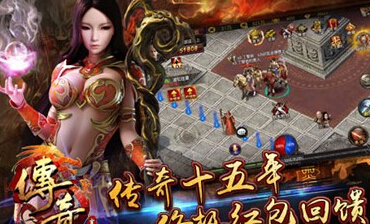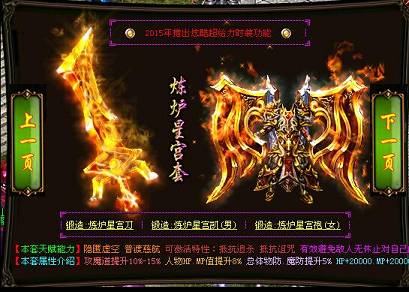今日新开传奇网站发布_3000ok传奇sf最新发布站_zhaosf官方传奇发布网
天骄开区网
- admin 2024年10月16日0
chuanqisif: Understanding Chuanqi, Its Origins, and Cultural Significance
The term "chuanqisif" refers to a unique concept that embodies culture, tradition, and often a sense of epic storytelling. In exploring "chuanqi," we realize that it can be loosely translated to "legend," which tells tales of extraordinary characters, historical figures, heroic deeds, and mythical themes. In various cultures, legends serve as essential components of societal values and beliefs. Chuanqi, in particular, has a rich historical narrative intertwined with the fabric of community folklore. It often reflects the intricacies of human emotions and the moral lessons that persist across generations. Expanding upon this keyword, "chuanqisif" prompts one to delve deeper into how these narratives are shaped by language, societal influences, and the points of view of their narrators.

The Origins of Chuanqi

The roots of chuanqi can be traced back to ancient storytelling traditions, often conveyed through oral narratives before being documented in written forms. Such legends have the unique ability to traverse the boundaries of time and space, representing not only the history of the people but also their cultural ethos. For instance, in many Eastern cultures, chuanqi showcases tales of deities, historical warriors, and moral parables that provide guidance on ethical living. These stories serve to educate the audience regarding values like bravery, loyalty, and respect for nature. The creation of chuanqi thus plays a crucial role in sustaining cultural identity while enabling each generation to connect with its past. As such, understanding its origins aids in appreciating the value it holds in evolving identity while reinforcing a community’s standards and beliefs.
Cultural Significance of Chuanqi
Chuanqi embodies more than just stories; it is a cultural artifact reflecting collective sentiment and societal virtues. In contemporary contexts, chuanqi provides not only entertainment but also means for individuals to engage with their heritage. Festivals and social gatherings historically revolve around the performance of these tales, which are often translated into art forms such as dance, theater, and literature. This reiteration serves to keep the legends alive, allowing younger generations to learn and imbibe the morals and principles those stories carry. Furthermore, the adaptation of chuanqi into modern media, such as films and television series, showcases its enduring appeal, capturing a wide audience while ensuring that the essence of these narratives is preserved. By leveraging modern technology, creators are able to reinvigorate classical chuanqi, adapting its themes to reflect contemporary issues while respecting its traditional roots. Thus, the significance of chuanqi transcends mere storytelling, becoming a means of cultural continuity and evolution.
In summary, the exploration of "chuanqisif" leads to a greater appreciation of the legends that define cultures around the world. The concept symbolizes more than just ancient stories; it reflects human experiences, societal values, and the enduring power of narrative as a tool for connection and education.
Questions & Answers
Q: What is the significance of chuanqi in cultural practices?
A: Chuanqi holds significant cultural importance as it serves as a medium for conveying societal values, morals, and historical narratives. It fosters a sense of belonging and identity among individuals within a community, ensuring the transmission of heritage through generations.
Q: How has modern media affected the adaptation of chuanqi?
A: Modern media has revitalized the adaptation of chuanqi by introducing its narratives to broader audiences through films, television, and digital platforms. This not only enhances its accessibility but also permits contemporary interpretations that resonate with current societal themes while maintaining traditional essences.
文章内容页下在线分享
chuanqisif: Understanding Chuanqi, Its Origins, and Cultural Significance
Powered By 2020-2025 Theme By 网站地图
评论列表: